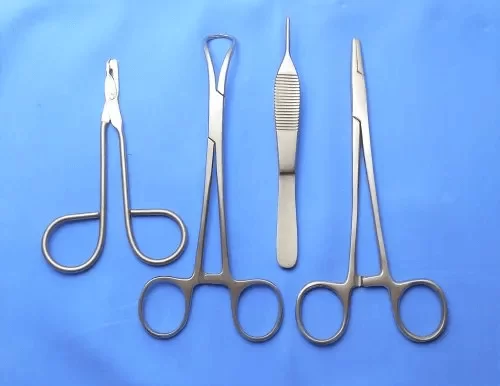Types of Surgical Instruments Materials: Precision in Every Alloy
 Surgical Instruments Materials: Surgical instruments are the lifelines of the medical world, and the materials they are crafted from are crucial to their performance. In this article, we’ll delve into the types of materials used in surgical instruments, their significance, and how they impact the precision and success of medical procedures.
Surgical Instruments Materials: Surgical instruments are the lifelines of the medical world, and the materials they are crafted from are crucial to their performance. In this article, we’ll delve into the types of materials used in surgical instruments, their significance, and how they impact the precision and success of medical procedures.
The Crucial Role of Materials in Surgical Instruments
Surgical Instruments Materials The effectiveness of surgical instruments hinges on the materials they are made of. The right material ensures precision, longevity, and reliability during surgical procedures.
Common Materials Used in Surgical Instruments
Stainless Steel
Stainless steel is the workhorse of surgical instruments Materials. Its durability, resistance to corrosion, and ease of sterilization make it a top choice.
Titanium
Titanium is known for its strength and biocompatibility. It’s often used in instruments for its lightweight and non-magnetic properties.
Tungsten Carbide
Tungsten carbide is exceptionally hard and wear-resistant, making it ideal for cutting instruments like scissors and needle holders.
Aluminum
Aluminum instruments are lightweight and often used in specialized procedures where weight is a critical factor.
Material Selection Factors
Choosing the right Surgical Instruments Materials involves considering various factors:
Durability
Instruments must withstand the rigors of surgery, and durability is key.
Corrosion Resistance
Resistance to corrosion is essential to maintain the instruments’ integrity.
Weight
For some procedures, the weight of the instrument can impact the surgeon’s precision.
Magnetic Properties
Instruments made of magnetic materials can interfere with MRI and other procedures.
Advanced Materials in Surgical Instruments
Innovations in materials science have introduced advanced materials like nitinol, a shape-memory alloy that can be used in minimally invasive surgery.
Materials for Specific Surgical Procedures
Different surgical specialties require instruments tailored to their needs:
Cardiovascular Surgery
Instruments for cardiovascular surgery often use materials like nitinol and specialized alloys due to the unique demands of the field.
Orthopedic Surgery
Orthopedic instruments require materials like stainless steel, titanium, and cobalt-chromium alloys for their strength and biocompatibility.
Neurosurgery
Precision is paramount in neurosurgery, and materials like tungsten carbide are used for fine instruments.
Innovations in Surgical Instrument Materials
Innovation continues to drive improvements in surgical instrument materials. Advancements like self-sterilizing materials are on the horizon.
FAQs
1. Why is stainless steel a popular choice for surgical instruments?
- Stainless steel is favored for its durability, corrosion resistance, and ease of sterilization.
2. What are the advantages of using titanium in surgical instruments?
- Titanium offers strength, and biocompatibility, and is lightweight, making it ideal for many instruments.
3. How does material choice affect neurosurgical instruments?
- Materials like tungsten carbide are used in neurosurgery due to their precision and wear resistance.
4. Are there materials used specifically for cardiovascular surgery instruments?
- Yes, specialized alloys and materials like nitinol are used for cardiovascular surgery instruments.
5. What are some future innovations in surgical instrument materials?
- Future innovations may include self-sterilizing materials and even more biocompatible alloys.

